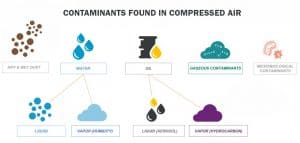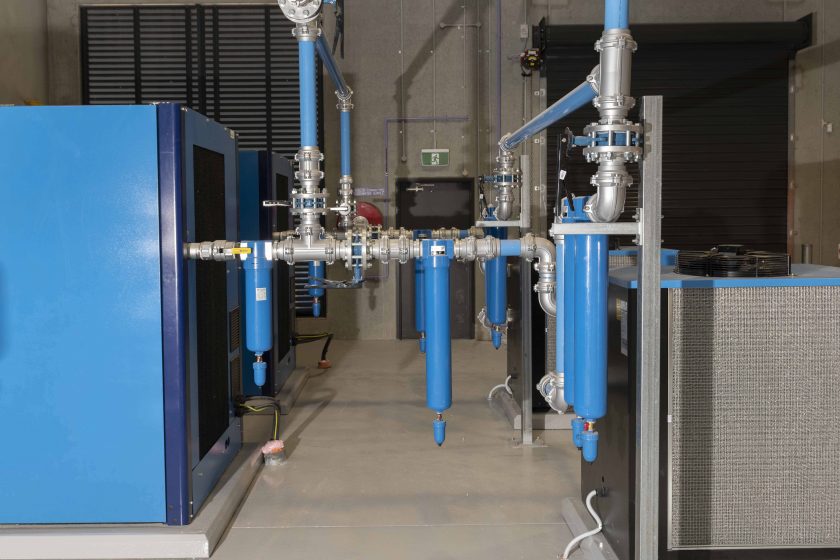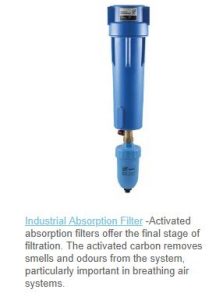Filters play a vital role in the compressed air process. Sanitary air impacts a number of different factors and elements regarding the performance, efficiency, and durability of various compressed air systems. By removing contaminants, compressed air filter systems protect the equipment and can actually extend the life of an air compressor system.

Effects of Contaminated Compressed Air
- Rusting and leaking of compressed air lines
- Pressure drop due to clogging and build up
- Reduced efficiency
- Increased costs
Types of air filters
- Particulate filters – Used to remove dust and particles from the air.
- Coalescing filters – Used to capture oil and/or moisture
- Activated carbon filters – Remove odours and vapours.
What are the important factors to consider when choosing the right filter for your application?
Size: A filter for an air compressor is rated based on inlet flow, which is generally measured in cfm. Match the inlet and outlet pipe size of the filter assembly to avoid generating excessive pressure drop across the compressed air filter.
Extraction efficiency: Extraction efficiency refers to the filter’s ability to remove dust from the air. You might be surprised to learn that a 99.8% filter will pass double the amount of dust that a 99.9% filter would.
Temperature: Filters have a maximum operating temperature. General use compressed air filters are designed for use at 38°C. It is a best practice to position compressed air filters in a location where the temperature is as low as possible.
Pressure drop: There is a pressure drop between the upstream and downstream sides of a filter. This is known as Delta P. You want a Delta P that is as low as possible when sizing a new compressed air filter and housing.
Infinity Pipe Systems provide a wide range of air filters and dryers. Contact us to enquire about our quality industrial products.







